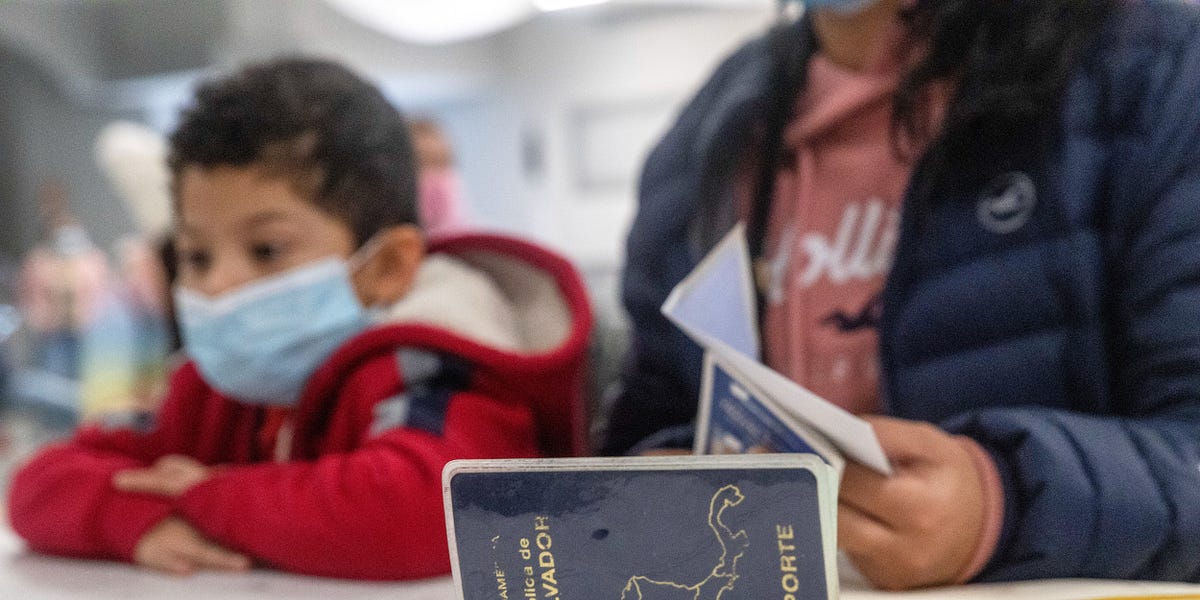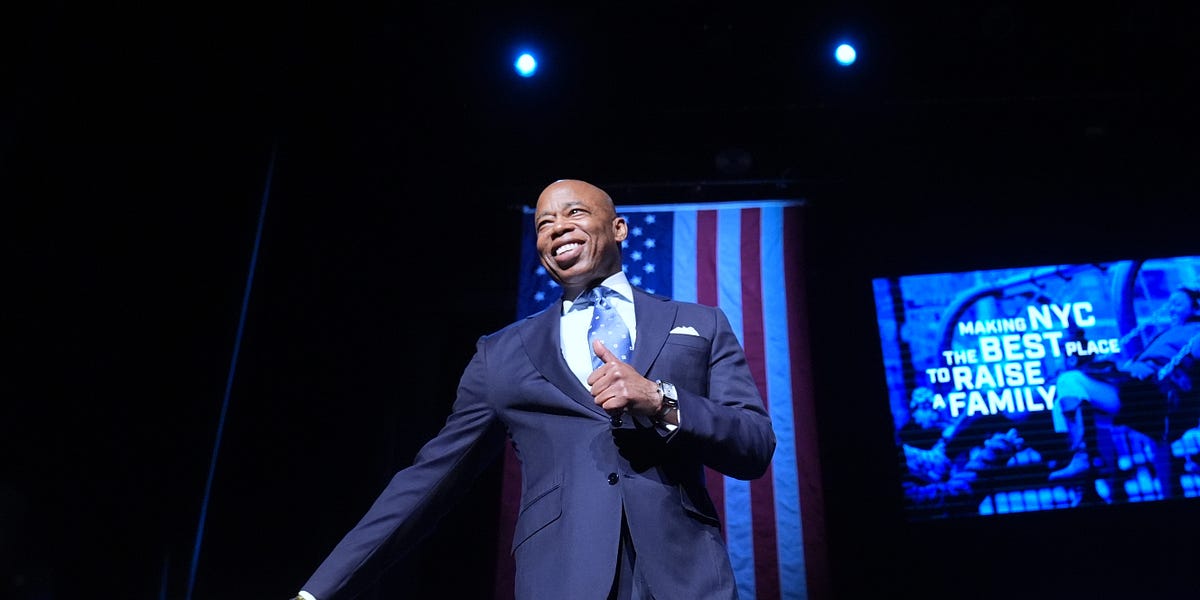
Via The Bulwark
I have known Adrian Carrasquillo for more than 15 years. At one point, we were both part of the original NBC Latino team. (That one’s for those who remember.)
Adrian is a journalist whose work I follow closely. Over the years, we’ve witnessed how American political media covers Latino communities—and often falls short. He has also become a close friend.
When I heard The Bulwark was featuring Adrian’s new Huddled Masses newsletter, which chronicles immigration in America and launched last week, I had to reach out. Publishing every Wednesday and Friday, the newsletter has quickly become essential reading for anyone seeking deeply reported stories on one of the country’s most contentious issues.
Over the weekend, we spent about 30 minutes going back and forth, and I added a few clips of our conversation in this post, but here is Adrian in his own words. (This conversation was edited for brevity, because when Adrian and I get together, we tend to talk a lot.)
On Launching Huddled Masses
“I think I hit up The Bulwark on December 2nd and said, hey, I want to do hard-hitting mass deportation coverage for you. We had a contract like 10 days later. Sometimes things just click. The goal was clear: to create a space for thoughtful coverage of immigration that isn’t afraid to tackle the tough questions.
“The newsletter’s first piece got hundreds of comments, and people are engaging with it in ways I didn’t expect. They want to have intellectual conversations about these issues, and it’s incredible to see.
“Working with The Bulwark has been great because they’re willing to take a stand. They’ve built a strong audience by not shying away from tough topics. Immigration is one of those topics, and they’re letting me dig deep into it.”
On the Stories He’s Telling
“I included voices like Enrique Acevedo, Paola Ramos, and Daniel Garza—people who have been sounding the alarm on these issues for years. It was important to center Latino voices in a conversation that too often sidelines them.
“Republicans have successfully framed the border as a humanitarian crisis. That framing has shaped public opinion significantly, creating a sense of urgency that has influenced policy decisions and media coverage. It often oversimplifies complex issues, and my role is to challenge those narratives by unpacking the underlying facts and providing context that’s missing from mainstream discussions. That narrative, while often oversimplified, has shifted public perception. My job is to unpack those narratives and bring the facts to the forefront.
“Look, the media needs to get this right. Immigration is not just about what happens at ports of entry or in border towns. It’s about the people who live in the interior, who contribute to communities, and who often face the harshest consequences of enforcement policies. We need to tell those stories.”
On NYC Mayor Eric Adams and Immigration
“[Last] Wednesday I called 25 people, which is definitely not normal for me. I was like, holy crap, this is because I just knew there were those different pieces, and we had to get straight where he’s been on this issue. Welcoming the buses and then all of a sudden changing.
“There was a Cuomo ally in the story —and look, I understand that Cuomo people are just trying to pile on Eric Adams— but I did think it was really interesting because Cuomo’s not some bastion of the left. And they were just like, this guy is trying to have it both ways. It’s nakedly sort of embarrassing what he’s doing, which is equating and conflating the migrant issue with illegal immigration. These migrants have asylum reasons. They can be here.
“For Trump to execute the mass deportation policy that he wants to do at the level that he wants to do it, he needs these mayors to help. You know, the Boston mayor, the Denver mayor, the Chicago mayor, the L.A. mayor, they’re all sanctuary cities. We’re going to fight Trump. And Adams is like, well, let’s see what happens.”
On Amplifying Latino Voices
“Media outlets need to recognize that their audiences are diverse, and their coverage needs to reflect that reality. When media prioritizes inclusivity, it doesn’t just enhance representation—it fosters a deeper understanding of how policies and narratives affect all communities. This kind of nuanced reporting can reshape public discourse, ensuring that stories are told with the complexity they deserve. It’s not just about checking a box. It’s about producing comprehensive, nuanced reporting that truly informs the public.
“Including Latino voices shouldn’t feel groundbreaking, but unfortunately, it still does. We’re talking about major issues that affect millions of people, yet their perspectives are often missing. That’s unacceptable.”
On the Future of Journalism
“I think the media should be doing tough coverage now, and they kind of feel a little bit cowed and a little bit nervous about the incoming Trump administration. And I know our industry has had its difficulties —it’s contracting, there’s been cuts, it’s badly bruised— but I think we both do this for similar reasons, which is just to try to elevate great voices and do good stories and good coverage.
“One story isn’t going to change the world. But if we all do a bunch of stories and push, then maybe the mainstream places can bring on people like us and the younger folks and the mid-career people, to say, all right, actually, we’re kind of missing this story, so how do we fix this? You know, that’s my hope.”
So, I know I have written a lot about how we keep The Latino Newsletter going in 2025, and the best way is to give what you can.
What We’re Reading
Rest in Power, José “Cha Cha” Jiménez: Last Friday, we shared news on social media about the death of Young Lords founder José “Cha Cha” Jiménez.
I will always recall the couple of emails Cha Cha sent to me during the early years of Latino Rebels. He told me he was a fan of LR and to just keep going. I know many people who have their own Cha Cha story, and yes, we lost a king.
Nicole Acevedo of NBC News filed a story Tuesday about his death and what he meant to so many of us.
Services will be on Thursday, January 16 in Chicago.

About the Author
Julio Ricardo Varela is the founder and publisher of The Latino Newsletter.
Do you believe in creating new journalism lanes for Latinos and Latinas? Do you believe that U.S. mainstream outlets will never understand our community? Consider donating to The Latino Newsletter. Any little bit helps to keep this newsletter free and accessible to all. ¡Gracias mil!




